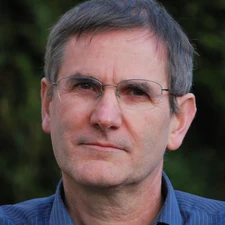Jacques Laskar

The 2019 Milutin Milanković Medal is awarded to Jacques Laskar for fundamental contributions to the investigation of orbital climate forcing, and for the development of long-term, reliable astronomical solutions important for the whole palaeoclimate community.
Jacques Laskar obtained his PhD from the Paris Observatory and has spent much of his research career there, where is now the director of the Institut de Mécanique Céleste et de Calcul des Ephémérides.
Over the last decades, he has continuously pioneered new and innovative astronomical solutions of the solar system and made these available for the study of palaeoclimate on Earth and other planets. These are indispensable for studying the astronomical forcing of climate and to build the new generation of state-of-the-art geological time scales with their improved accuracy, precision and resolution. His work has effectively extended the ideas that Milankovitch established to longer time scales.
The reason for Laskar’s collaboration with Earth scientists and cyclostratigraphers is his intrinsic interest in the geological applications of his models of orbital motions. As astronomer, he has co-authored numerous publications with geologists and has continuously supported the geoscientific community in investigating the orbital imprint in sedimentary and palaeoclimatic records. Due to his efforts, the reliability of the solution for the eccentricity of Earth’s orbit has been extended from 1-2 million years to approximately 50 million years. He included the Earth’s parameters of tidal dissipation and dynamical ellipticity in the solution, allowing more accurate and precise astrochronologies. He was also the first to document the sensitivity of the orbital solutions to chaos (even the major asteroids are important) and showed that the solutions were not valid after about 50 million years.
He has published more than 150 papers and his work has been inspirational to two generations of researchers, both as a mentor to graduate students and post-docs and more generally by his published research.
